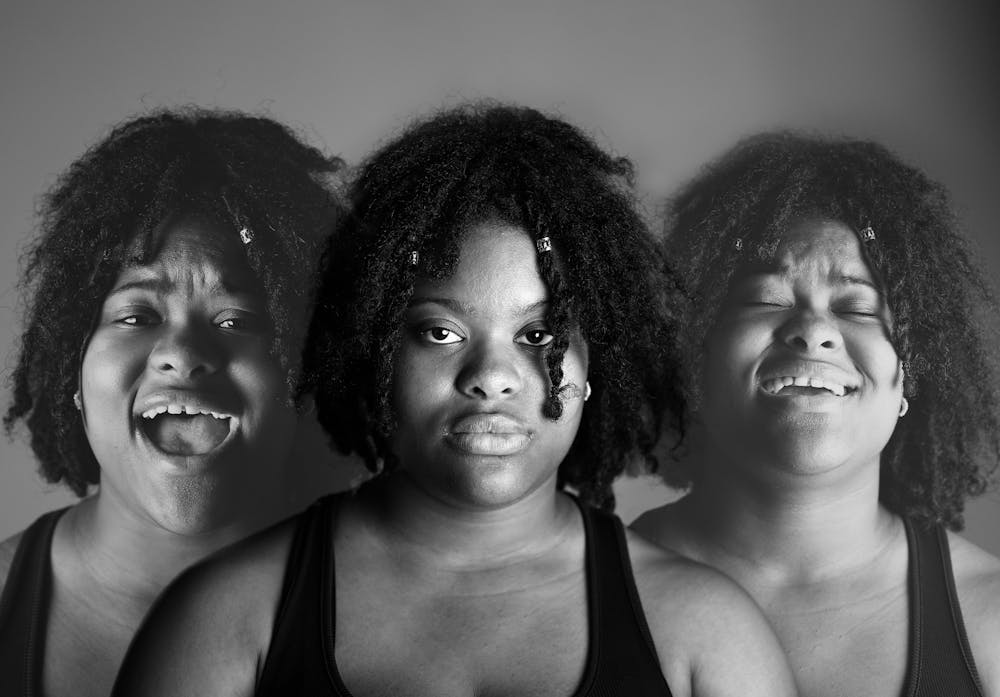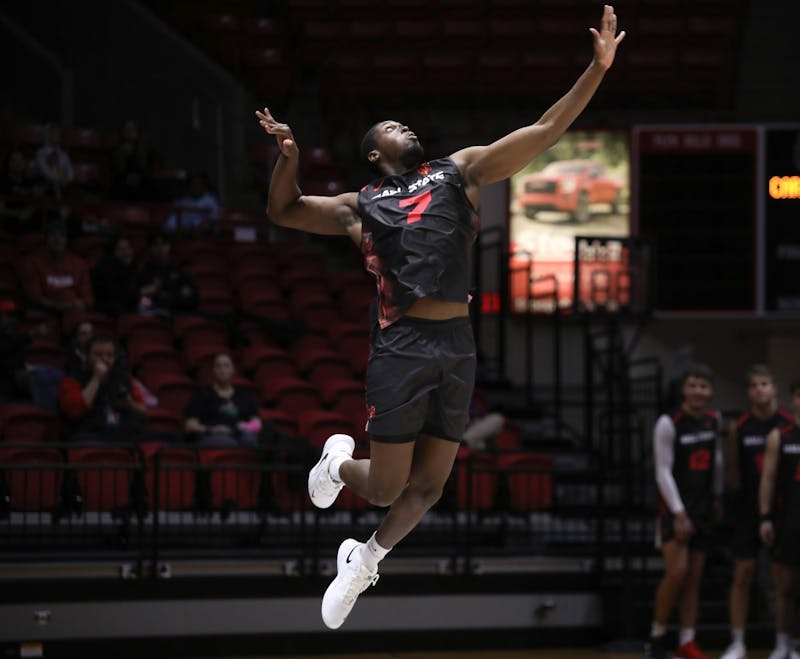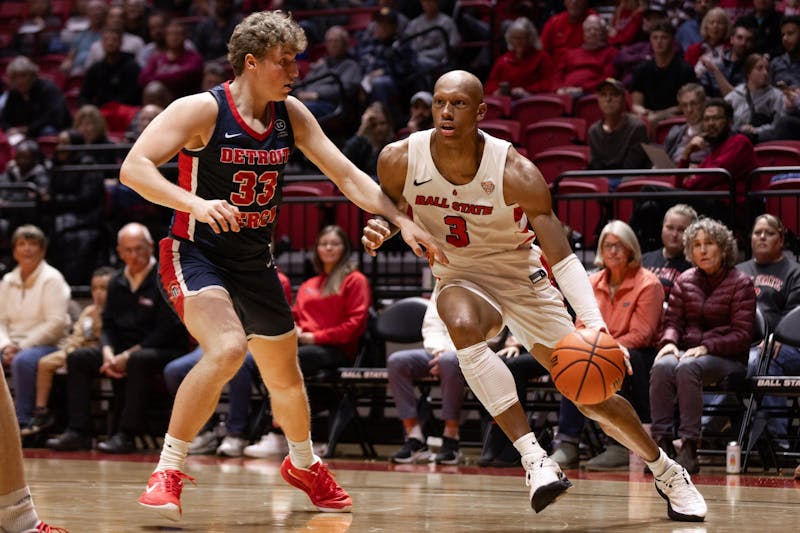KwaTashea Marfo is a second-year public relations major and writes “Imperfectly Perfect” for The Daily News. Her views do not necessarily reflect those of the newspaper.
This phrase has walked beside me since I could talk: “If you keep on, your attitude will get you in a world of trouble.”
The sentence has now become a nerve-racking, long-standing pet peeve of mine, resurfacing anytime I dare to question an authoritative figure.
What seems like a calming phrase is actually words of conviction — terms that dictate how and what I should feel when I express any emotion other than being positive, calm or servile.
Words that were never about the phrase to me but about the death-glaring stare, negative connotations and guilt trip associated with it.
The statement was intended to calm me down but angered me more than before.
With no intent of having someone dictate my emotions, I would respond with, “I don’t have an attitude.” However, without fail, my response would result in consequences.
It didn’t help that although I wasn’t intentionally saying anything with my body, my face held a world of emotions my eyes couldn’t hide. I was confused, but the outside world perceives it as anger.
That confusion turned to understanding this year, seven months shy of my 20th birthday. I finally received the answer to the question that had plagued me since I was a little girl: “Why is everyone assuming how I feel as opposed to asking me how I feel?”
The fact of the matter is that intersectionality and the Angry Black Woman (ABW) trope are significant factors that unconsciously clog the minds of people who take it amongst themselves to reiterate microaggressions surrounding my demeanor and presence.
Intersectionality is a concept defined as a social collision of identities – race, gender and socioeconomic class. Coined by Civil Right advocate Kimberlé Crenshaw in a 2016 TED Talk, it encompasses an individual's background and how they choose to show up in the world. The problem of intersectionality lies when my identities are grouped to fathom microaggressions and force assimilation upon me — the implication of the Sapphire caricature.
According to the National Museum of African American History & Culture, the term Sapphire caricature was coined from a 1950s CBS television show “Amos ‘n’ Andy,” associated with the character Sapphire Stevens. The show’s main character is the wife of George “Kingfish” Stevens, a character portrayed as ignorant and lazy — fueling Sapphire’s rage. The effect of this stereotype became more effectively known as the ABW trope, which portrayed Black women in direct violation of social norms as loud, angry, emasculating and domineering when they desired to have their emotions respected and heard.
It’s not to say that other races of women do not experience resistance when they fight to uplift their voices. Black women fight to be heard but also against people policing the tone of their voice. I cannot express my discontent in any given situation without the risk of being seen by those around me as an Angry Black Woman.
With intersectionality and the Sapphire caricature co-existing with each other, I have two phenomena punishing me as a Black woman for expressing negativity or passion. These tainted perceptions strive to cage my Black femininity into a nice, subservient attraction that is palatable to the masses.
It’s okay to express my concerns, but only if it sounds soft and pleasing.
Research from Harvard Business Review published in 2022 theorizes that the attribution theory, a psychological theory that attributes causes of behavior to either internal or external characteristics. This can explain why some people are likely to attribute anger to a Black woman’s personality rather than an inciting situation.
In a controlled experiment of women, participants listened to an audio clip. The recordings portrayed either Lakeisha, a Black actress, or a white actress, Claire. It required participants to determine whether or not their tones were aggressive. Both Lakeisha and Claire expressed a stern, hostile tone and raised their voices pretending to be upset about a circumstance.
After answering a series of questions about attribution, performance evaluations and leadership capabilities, the participants were more likely to attribute Lakeisha’s anger to internal characters because “the behavior brought to mind the stereotype of an angry Black woman,” according to the study.
Even in a controlled environment, research indicates that bias causes individuals to activate the stereotype and internal attributes of an angry Black woman.
The truth is that America has never welcomed Black femininity, and for these reasons, I was baffled with the confusion as a little girl. I found myself subject to disrespect and oppression from the prism of racial and gender discrimination against my personality.
This effect extended into other experiences in my life, including when I would be told on numerous occasions that I looked intimidating at first glance but down to earth when others got to know me. The reality is that Black women are met with an inability to be seen as nuanced compared to their counterparts. So, when I exist in my natural state, not in alignment with societal norms of womanliness, I am susceptible to become the ABW trope.
But why can’t I just be? Why can't I speak in my God-given tone with all of its base and passion?
I should be able to be seen as strong-willed, resilient and passionate without the fear of coming off as aggressive, irrational or sassy. I experience emotions like sadness and anger not because of the functionality of my race or gender, but the functionality of my humanity.
I should not have to subjugate my identity for society’s respectability and assimilation. I do not need an explanation or owe anyone an apology for my agency, but know that I am not a threat.
Even so, my assertive personality should not be misconstrued into emasculation when discussed upon my passion of pursuing a career in communications.
My main objective for entering communications has always been driven by the desire to create a platform that encourages a positive outlook of diverse perspectives that are often overlooked and prohibited from receiving awareness.
However, entering a field that has gender barriers, my personality comes with some triggers. If I come off as too emotional, I will be perceived as weak or whiny. And if I come off as too strong, I will find myself conflicted with the dilemma of whether to illuminate my voice at all.
There’s a double hurdle for me that I will have to strategically surpass if I want to be taken seriously in my career. Regardless of my efforts, opinions will be formed whether I choose to speak up or suppress my sentiments.
For the sake of preserving my sanity, it is up to me to take control of the narrative utilizing Black femininity as a toolkit. This will allow me to overcome prevailing attitudes that I am an aggressive African American woman.
America, hear and aim to understand the feelings of Black women. Address your implicit bias to become aware that the Sapphire caricature makes people less likely to take Black women seriously.
Our emotions should not pose a threat to you or your positioning. Let us be us, without apology.
Contact KwaTashea Marfo with comments at kwatashea.marfo@bsu.edu or on Twitter @mkwatashea.





The Daily News welcomes thoughtful discussion on all of our stories, but please keep comments civil and on-topic. Read our full guidelines here.